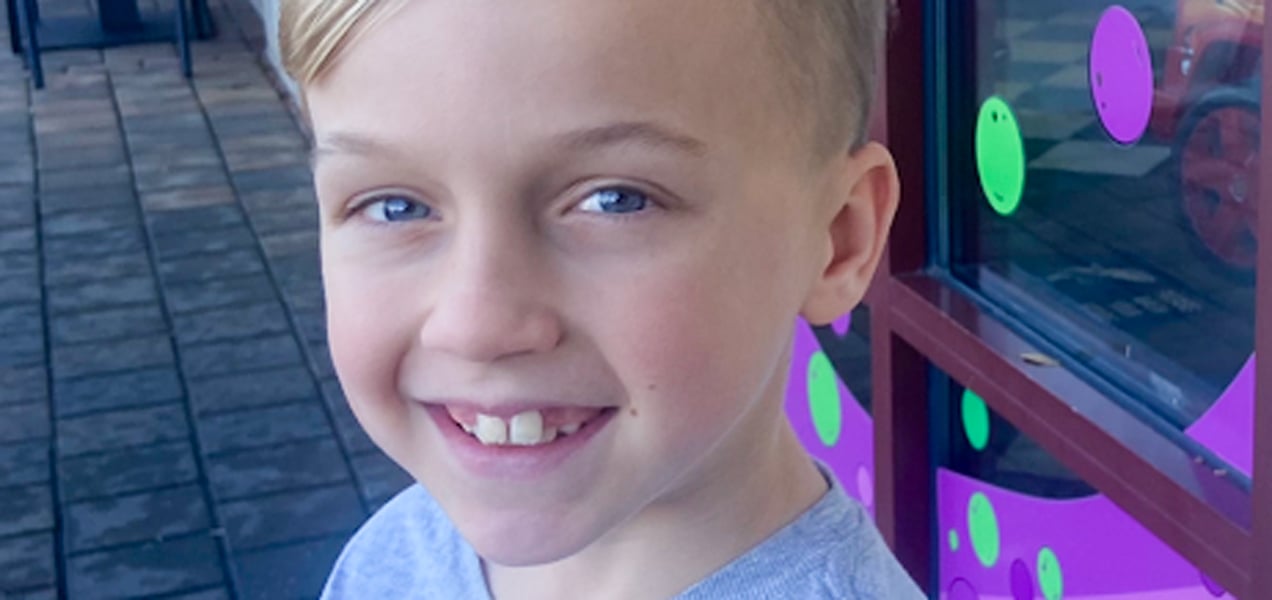
A Life in Balance

Rocco is a compact kid with a big heart. He thanks his phlebotomist for taking his blood. He thanks his mom, Sara, for giving him his two growth hormone shots each night. Sara, a pediatric nurse, describes Rocco, one of three boys, as “a gift, a blessing, an easy happy child who rolls with the punches and loves people.” He lives with his family in Charlotte, North Carolina.
Strangers mistake Rocco for a 4- or 5-year-old until he starts talking. He is three standard deviations below the growth chart for his age. He has a dominant-negative mutation in the growth hormone receptor gene (GHR). This is a very rare disorder. Rocco’s body does not produce insulin-like growth factor 1 (IGF-1), a hormone that manages the effects of growth hormone in the body.
Rocco’s family has sought a diagnosis since he was very young. A geneticist confirmed two years ago that Rocco has the GHR variant. His dad, also small in stature, tests positive for the variant, but not the brothers. The family knows that Rocco may never be a typical height, but they want him to be healthy and living his best life. “I tell Rocco that physically he is perfect, he’s made great, but we want his body to be in balance — his hormones in balance. We want his body to function right,” says Sara.
The family’s search for an expert in genetic causes of growth disorder brought them to Andrew Dauber, MD, MMSc, chief of Endocrinology at Children’s National Hospital. After a series of virtual meetings, they visited Children’s National for the first time in October 2022 to launch a clinical study specifically designed for Rocco.
Dr. Dauber leads the study, with funding from the National Institutes of Health and Pfizer. Rocco receives high doses of growth hormone which overcome the growth hormone resistance, helping to normalize IGF-1 levels and improve his growth. Sara says the study is going extremely well and that his IGF-1 levels continually go up — from the 50s at the start to the 280s, within normal range for his age.
Rocco and family look forward to visiting Children’s National every 12 weeks. “Everyone makes him feel like a superstar, not as if he is sick or broken or that he requires fixing,” says Sara. “It’s always a positive experience, which is so important for him.”
Dr. Dauber is seeking an extension for the study which was originally set for one year. “I am so very grateful that Dr. Dauber took the time and effort to write a trial just for my son. It’s just incredible. It’s giving him a chance he would not have gotten otherwise. And Rocco finds it cool that Dr. Dauber can learn things from his body that will help other kids in the future,” says Sara.
Rocco's Care Team Departments
Care Team
This is a carousel. Use Next and Previous buttons to navigate, or jump to a slide with the slide dots.


Be the Reason a Child Smiles
Every day at Children’s National Hospital, lives are changed through compassionate care and groundbreaking discoveries. Your charitable donation helps us deliver expert treatment and hope to thousands of children and families.
Meet the patients whose stories inspire us—and see the difference your support makes.




